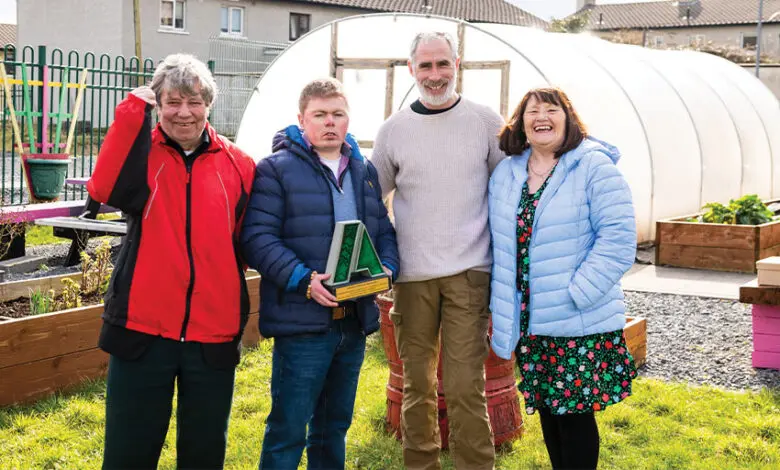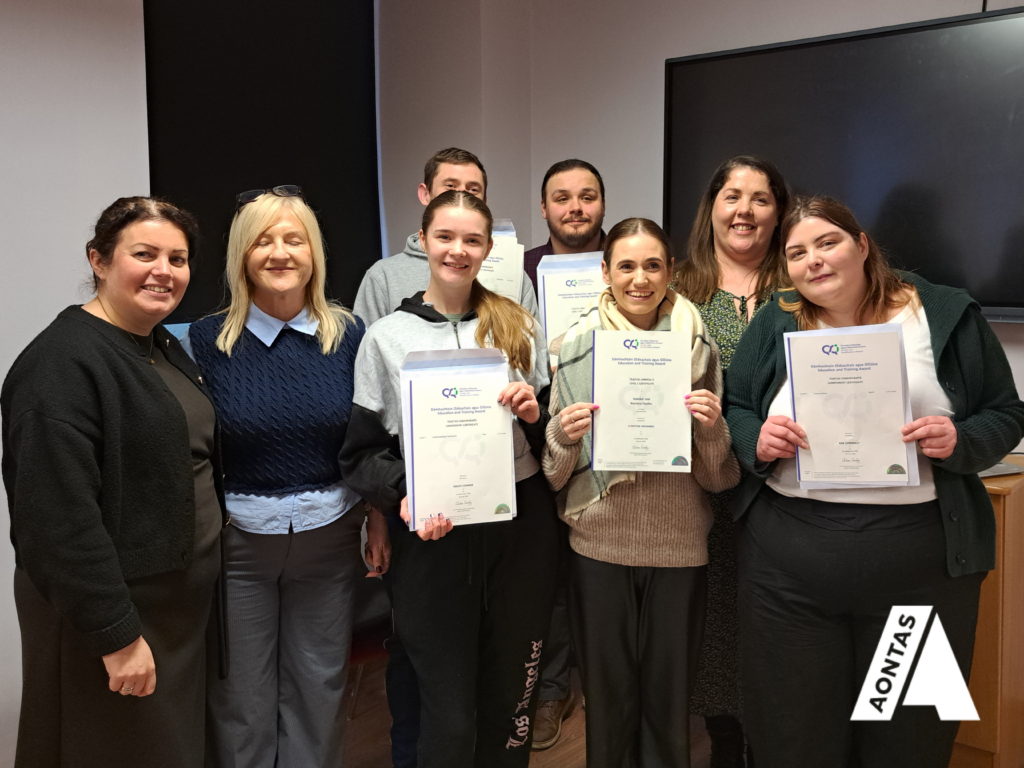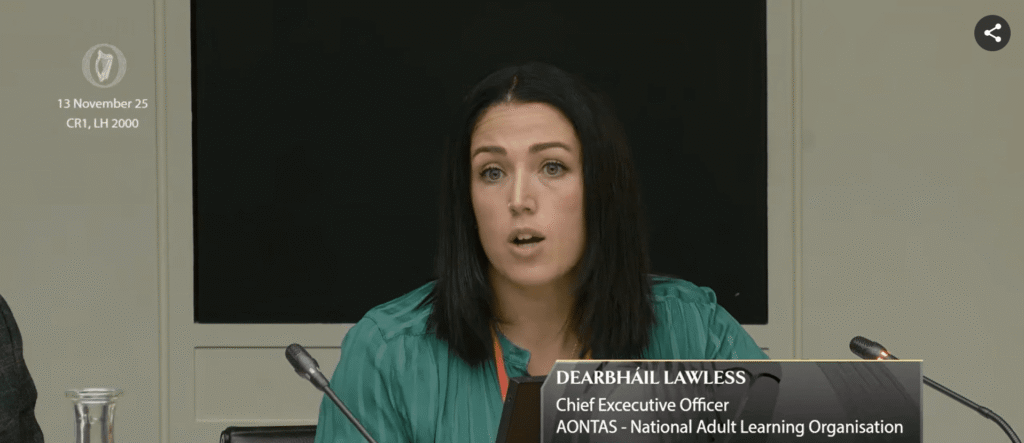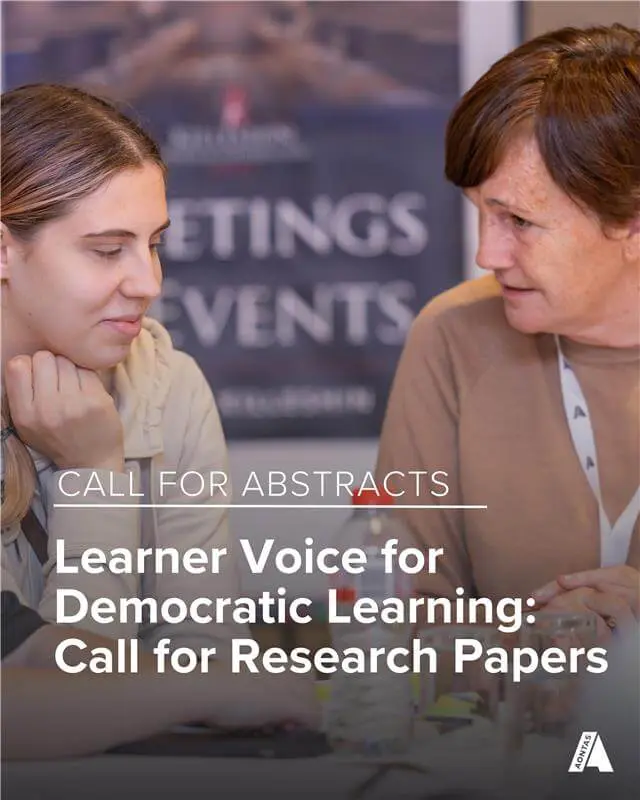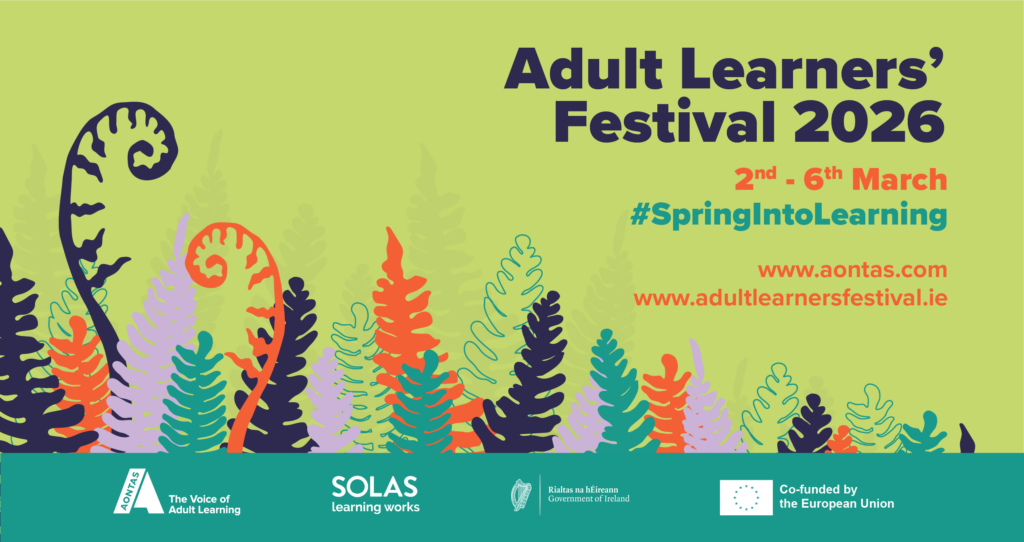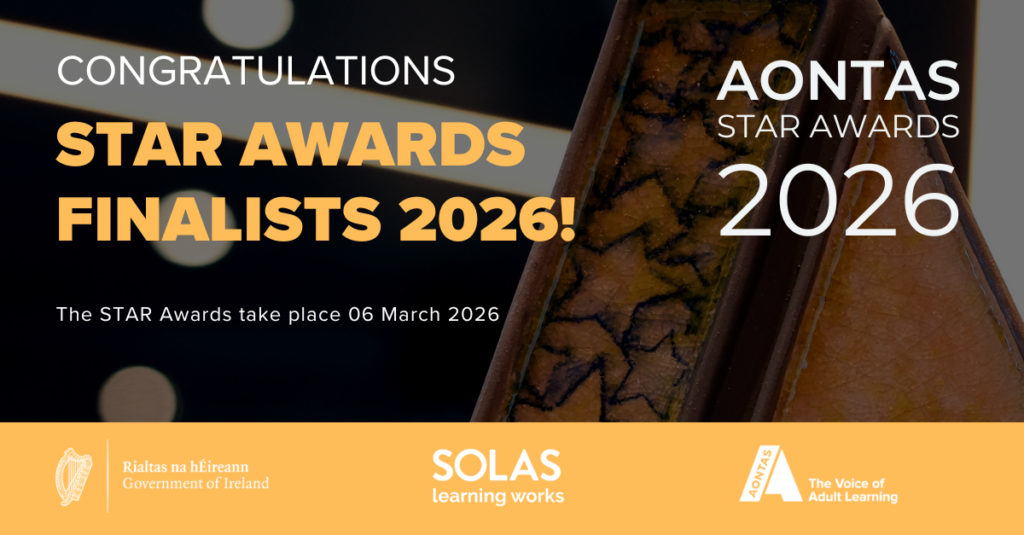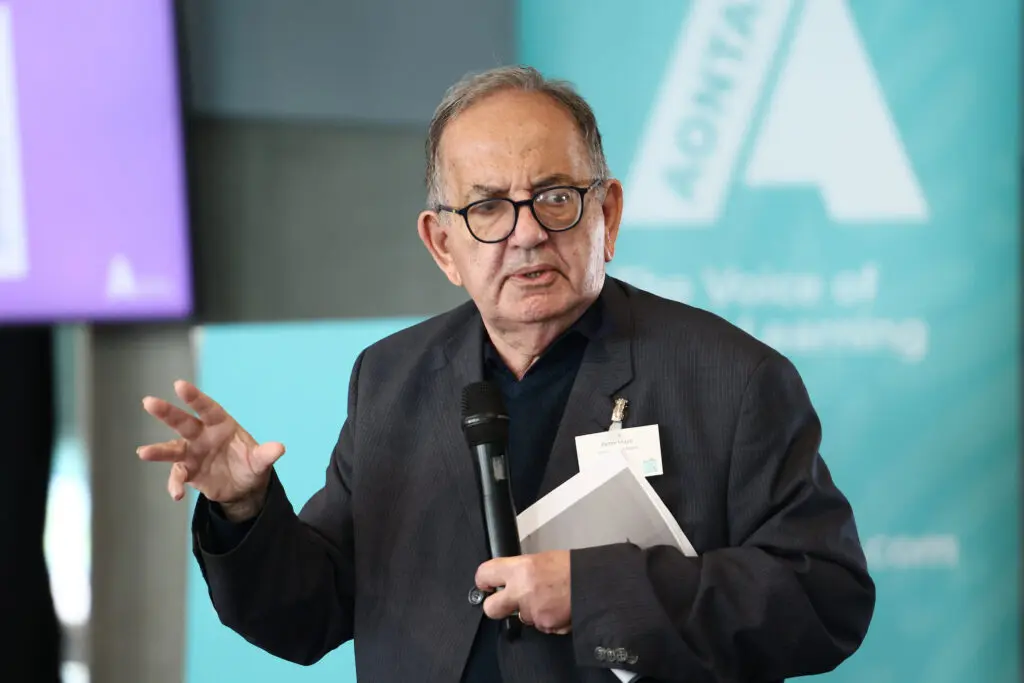This refers to moving into a future where all members of our society are well equipped to participate in and adapt to a world shaped by technology and climate change.
To mark the end of this thematic year, the European Commission organised a vibrant hybrid event that took place from Brussels. Speakers from a wide range of sectors across Europe shared stories of success, reflected on key learnings, and helped map future opportunities and challenges. On behalf of AONTAS, I attended the event online.
AONTAS, and other groups working in adult and community education and focused on social justice, have often been critical of framing skills development in the context of economic growth.
Focusing on skills development in this framework fails to acknowledge and address the realities and needs of underserved communities, and could further perpetuate their exclusion from society.
At the end of last year, we published an article in Eolas magazine, showing how current skills development-oriented initiatives serve people who are already strong participants in the society and contributors to the economy. This means that those able to upskill and reskill are generally individuals who already avail of easier access to education.
Adults who are lone parents, travellers, have experienced homelessness or imprisonment, have a disability or are migrants, for example, face considerably more barriers to engaging in education. This is the case especially if the purpose of engaging with education is to gain skills to secure sustainable or meaningful employment.
In the backdrop of all this, the discussions and narratives at the final European Year of Skills Webinar took a surprising turn.
The importance of soft skills
Speakers actually agreed that soft skills like empathy, emotional intelligence and resilience are core areas of importance, even in the context of seeking employment.
From an adult and community education perspective, having individuals who are empathetic and emotionally educated also fosters a more equitable and just society. This is the case both for those in power, who often make decisions based on economic, rather than humanistic views, and for those individuals who can open and create bridges between the larger society and the furthest left behind.
Speakers also discussed the challenges of addressing the development of soft skills, due to the difficulty to measure and accredit them.
In our current society, measurement and standardisation has become a vehicle for neoliberal agendas, whereby our society is governed by economic interests, overlooking human-centred values. In education, this sometimes manifests itself through standardisation of examinations, which discriminates against the many possible ways of being and learning, and which often results in further marginalising those already underserved in our society.
This often results in the discrediting of anything that cannot be demonstrated through quantitative means. This is demonstrated through lack of funding and supports.
The need for an inclusive society
The core of the conversation was that any skills development initiative should take into consideration the human factor. One speaker made the point that Europe is not facing a shortage of workers, but rather a shortage of accessible jobs.
Many spoke about and gave examples of how their companies, governments, and organisations address inclusion. An example was illustrated by Per Schrøder, Executive Vice President of Operations of the Danish State Railways (DSB). According to Schrøder, the workforce in the Danish railways was historically comprised of Danish men, due to lack of accessibility by other genders or nationalities. In addition to this, the training process took two and a half years, which was too long to attract individuals into taking this route.
To address these issues, the DSB reached out to women by changing their marketing strategy, and the ways they recruited and interviewed people. They reduced the training time from two and a half years to one year.
They also made changes to how the jobs can be carried out, to ensure broader accessibility. They allowed workers to produce reports using assistive technologies like speech-to-text.
Now, the DSR staff includes 50% women, 70 different nationalities, and people with different abilities.
Speakers also talked about the importance of outreach and meeting people where they are. Programmes and opportunities for younger people from marginalised backgrounds are failing because they overlook the importance of actively reaching out . According to Giuseppina Tucci, Representative of the European Apprentices Network (EAN) & Secretary General of the Organising Bureau of European School Student Unions (OBESSU), young people will not simply engage with programmes because they exist, rather they will engage because programmes come to them, enter their world and guide them through the professional journey.
Another important point was on closing the digital divide. This is relevant across all areas. Often, individuals who are left behind have not yet experienced the benefits and relevance of acquiring certain skills, and so lack motivation to do so. People would be more willing to accept and engage in digitalisation if they saw that their lives could be improved by it, and not made more difficult.
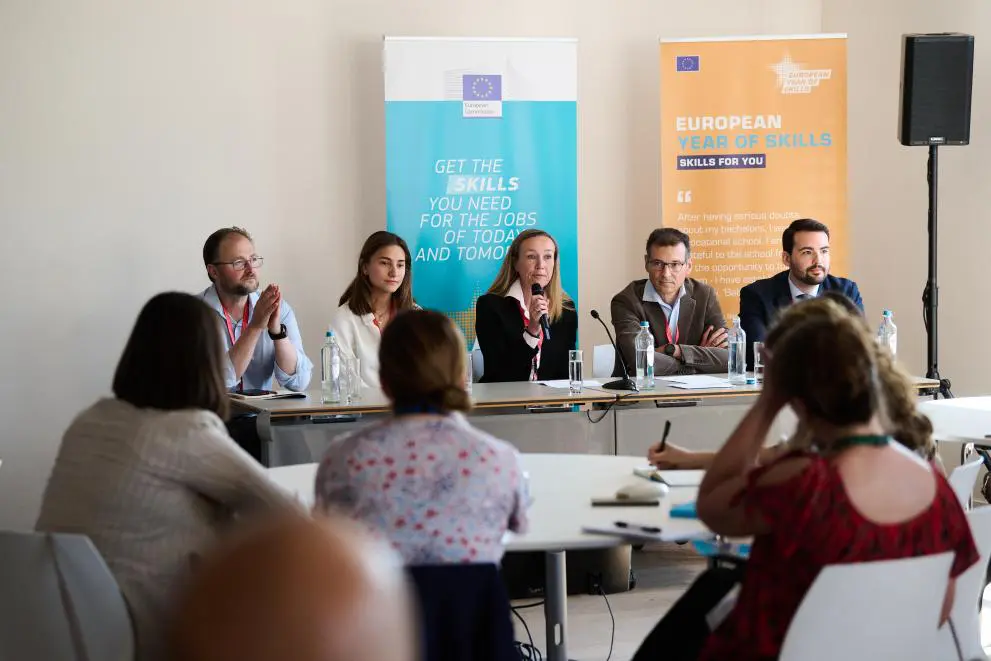 Image courtesy of European Year of Skills
Image courtesy of European Year of Skills
The bigger picture: Looking to the future
The panel discussions also revolved around questions about the kind of society we want to live in.
Focusing on skills, the workforce, and economic growth – without envisioning values that promote human rights and flourishing – could further generate inequalities.
One speaker said that inclusion is a moral imperative. We need commitment to ensure that the green and digital transitions will include all members of our society.
This also means thinking about the types of skills needed to create a more just society.
One speaker emphasised the need for skills that enable citizens to engage politically and democratically. This includes critical thinking, understanding elections, and media literacy.
From the Year of Skills, to a decade of skills, to lifelong learning
‘We need a decade of skills, not just a year,’ was the catchphrase of the event, brought to life by various speakers, and reiterated by Nicolas Schmit, European Commissioner for Jobs and Social Rights, in his closing remarks.
The consensus was the need for a lifelong commitment to learning.
Nicolas Schmit reiterated the fundamental principal of lifelong learning, that society is open to all individuals, and anyone can evolve.
Moving forward – what comes next?
While it justly received some criticism and scepticism, the European Year of Skills has been fertile ground for generating ideas, connections, and pledges for a more just and equal society.
To ensure that this will be continued, speakers emphasized the importance of collaboration between all sectors.
‘While there is no magical solution’, said one speaker, ‘we need to work together with problems, challenges, and opportunities as they arise’.
At a European level, some participants suggested that this can be done through an ongoing exchange of ideas, knowledge, resources, but also of good practice. Ensuring that the green, digital, and demographic changes don’t leave anyone behind requires an interconnected structure.
Schmit also said we need ‘to break the silence’ about the horizontal nature of skills, how we should all own skills development, and that skills policy should reflect this. Equally important, according to Schmit, is changing our attitudes towards skills as fixed attributes, and recognizing the potential people have for different skills, and give all skills equal merit.
Read more about the European Year of Skills here
For more information on the project, please contact Larisa at lsioneriu@aontas.com
